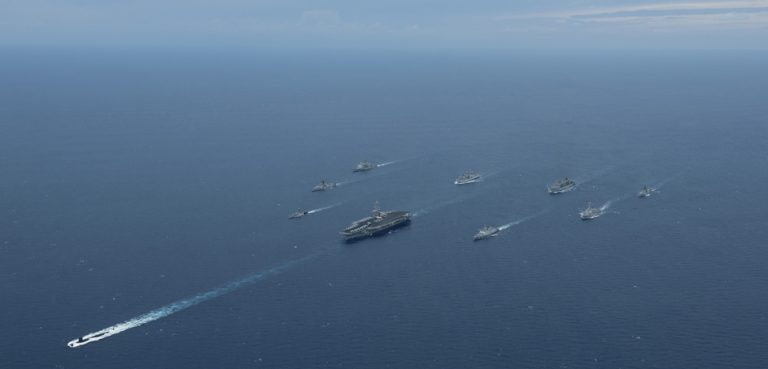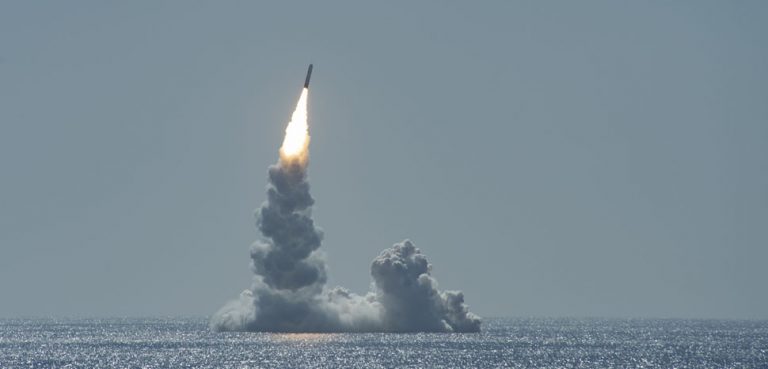Summary
The governments of the United States, United Kingdom, and Australia have announced a new defense partnership, dubbed “AUKUS.” The deal foresees “deeper information and technology sharing… [along with] deeper integration of security and defense-related science, technology, industrial bases, and supply chains… in particular, we will significantly deepen cooperation on a range of security and defense capabilities.” The joint declaration also commits to “triliteral collaboration… to enhance our joint capabilities and interoperability” and closes with the mission statement of “[helping] to sustain peace and stability in the Indo-Pacific region… to protect our shared values and promote security and prosperity.”
While China does not appear in the official statements, it’s clear who this new defense agreement is aimed at.
Impact
The AUKUS pact continues the trend of democratic states banding together to voice their concern over issues such as China’s militarization of the South China Sea, the political situation in Hong Kong, and mass-incarceration of ethnic Uighurs in Xinjiang. This trend was most recently evident during the Quad’s virtual summit in March and the G7’s June summit in the United Kingdom. However, this latest AUKUS pact is arguably more impactful than previous examples for a number of reasons:
The tone of the pact and a newfound willingness to antagonize Beijing
Though China isn’t mentioned directly in the text, it’s clear who the pact is aimed at, and unsurprisingly AUKUS is being attacked as a dangerous example of “geopolitical games” by the Chinese foreign ministry. There are clear potential trade repercussions for Australia and, to a greater extent, the United Kingdom as well, but both governments opted to proceed with the pact regardless. This represents a new development over the past year, and it’s a sharp break from the past. Consider that the Rudd government pulled Australia out of the Quad in 2008 for fear of antagonizing Beijing and jeopardizing the bilateral trade relationship. Fast-forward to 2021 and said trade relationship is now under immense strain, with the most resilient Australian exports being only those strategic commodities that China cannot source elsewhere (i.e, iron and to a lesser extent bauxite). The same period has witnessed a transition from caution to eager acceptance in Canberra’s approach toward the US security umbrella.




